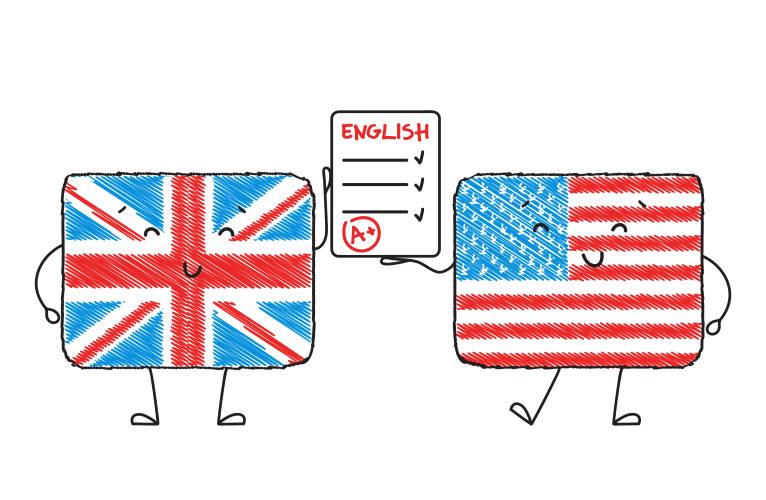Today’s English has changed since the 1960s. Americans, who are often perceived as being a country of book-learners, may not be aware of the extent to which their language has changed. There are 2 common dialects that are commonly used. The first one is American English, and the second one is British English.
The pattern of American English is different from British English. Here are some differences between American and British English.
| American English | British English |
| Use in America and Canada | Use in Great Britain |
| The pronunciation; r pronounce r | The pronunciation; r pronounce w |
What is American English?
English as spoken in the United States and Canada is generally understood to refer to the different ways that people speak and write English in these countries. American English describes the varieties of English that are commonly used in the United States.
American English is the only English language that originated in the U.S., and the AmE was the first major version of the language that evolved outside of Britain. It was Noah Webster who put the foundation for a very American English that governed its rhetoric.
Richard W. Bailey, in his book Speaking American, suggests that the rise of American English began shortly after the Revolution, and its most articulate speaker was the witty Noah Webster.
What is British English?
The English language is made up of many different dialects that are spoken and written in Britain (or, more narrowly, in England) English spoken and written in Great Britain is known as British English,
British English may serve as a common language, but it does not apply universally to all British people, says Pam Peters. Some English citizens are not happy with the term British English because it implies that there is a much wider range of English usage than it actually demonstrates.
How are They Related?
The common English forms that are used regularly are those that are characteristic of southern dialects, says Pam Peters, an authority on English historical linguistics. British English is a generic term for all the different dialects of English that exist in Great Britain.
American English vs British English
There are many differences between American English and British English. One of the most obvious is the spelling. Words like “color” and “colour” are spelled differently in American English and British English, as are some words that end in “-ize”, such as “organization” and “organise”.
Other differences include the pronunciation of certain letters, words, and sounds.
The letter “R” is generally not pronounced in American English, but is pronounced as a “W” in British English. Likewise, the letter “O” is often not pronounced in American English, but is pronounced as a “U” in British English.
There are also different ways of pronouncing certain words, such as “can” versus “cannot”.
The word order of sentences is also different between American and British English. British spelling rules are taught to children at school and the rules are widely respected by adults.
In contrast, many Americans have developed their own individualized spelling rules which they apply to all words they write or speak. These idiosyncratic spelling rules may differ from those used by educated British people and even those of other Americans with whom they interact.
In Britain, schoolchildren are taught that if they want to show that a word has two syllables then it should be spelt with an extra vowel at the end: for example, would be spelled . In America, children are taught that if a word has two syllables then it should be spelt with an extra consonant at the end: for example would be spelled.






